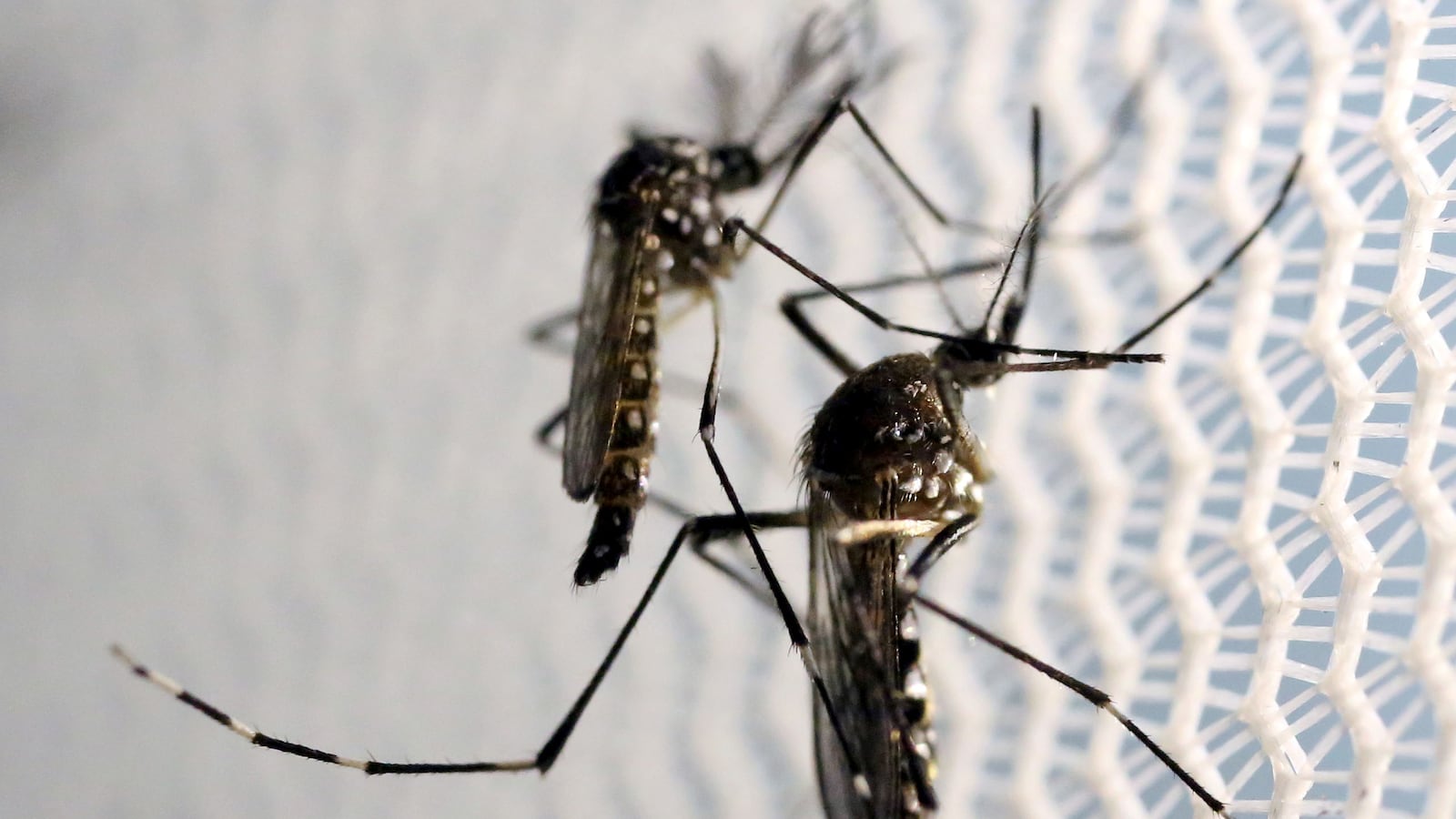As if Zika weren’t bad enough, dengue fever has landed in Miami, too.
On Wednesday, the Florida Department of Health announced the first non-travel related case of dengue fever to be reported in Miami-Dade County this year. It is also the second local case of dengue in Florida this year. The infected individual in Miami-Dade has “received medical treatment and is expected to make a full recovery,” the DOH noted in a press release.
But the DOH is also “investigating close contacts around the individual” to determine if others have been infected—not through direct person-to-person contact but through mosquito bites.
That’s right: Dengue is transmitted by the very same Zika-spreading Aedes aegypti mosquitoes that Miami-Dade officials have been trying to control for months.
“It’s not unexpected in light of dengue being transmitted elsewhere by the the same vector in the same areas,” Joseph Conlon, a technical adviser for the American Mosquito Control Association, told The Daily Beast of the new dengue case. “This underscores the importance of keeping our eye on vector control—not Zika control.”
Dengue does not spread directly from person to person, as the Centers for Disease Control and Prevention (CDC) notes; rather, the virus uses Aedes aegypti mosquitoes as its vector. Symptoms of infection include fever, headaches, pain behind the eyes, muscle and joint pain, and bleeding, according to the CDC. Dengue fever can be serious and even fatal—especially in the Latin American and Asian countries where it primarily occurs—but, as the World Health Organization notes, early detection and health care access can “lower fatality rates below 1 percent.”
For Miamians who have already been dealing with Zika all summer, this dengue case comes at a particularly frustrating moment.
In July, non-travel related cases of Zika infection were first reported in the trendy Wynwood neighborhood near downtown Miami, prompting an unprecedented CDC travel advisory for the small but highly trafficked area. After a combination of aerial and ground spraying, the CDC was able to relax the Wynwood travel advisory on Sept. 19.
But by that point, Zika had already spread to Miami Beach, where county officials are still trying to ensure that transmission is under control. On Wednesday, as WPLG reported, Miami-Dade County Mayor Carlos Giménez responded to mounting community pressure by releasing a map of Miami Beach showing the locations of five traps that have captured Zika-positive mosquitoes, all of them spread several blocks apart.
“It is also important to note that while we did have five traps that tested positive for Zika on dates ranging from August 22 to September 9, multiple subsequent tests have since been conducted, and all of those tests came back negative,” Gimenez said in a press release.
But new local cases continue to be reported almost daily. On Thursday, the DOH announced four new non travel-related cases of Zika in Miami-Dade, one of whom was exposed to the virus in Miami Beach. In total, according to DOH statistics that are tracked daily by the Miami Herald, there have been 110 locally transmitted cases of Zika in Miami-Dade County.
And now, dengue. This is not the first time that dengue has hit Florida. As the DOH website notes, an 88-person dengue outbreak hit Key West in 2009 after a 75-year absence from the state. Since 2010, there have been “several transient dengue introductions,” but none have resulted in “persistent transmission” except for a smaller, 28-person outbreak south of Port St. Lucie in 2013 (PDF).
“There is some evidence that the United States lifestyle, such as routine use of air conditioning and screened windows, as well as spending more time indoors, may protect us from having large outbreaks,” the DOH notes.
Whether this new dengue case in Miami-Dade is an isolated incident or the start of another outbreak remains to be seen. For now, the good news is that the same tactics that work on Zika will help prevent dengue, too.
After a lengthy debate, Congress approved a $1.1 billion anti-Zika funding package on Thursday that includes $394 million for mosquito control. With luck, Florida will be able to squash two tropical viruses for the price of one.






